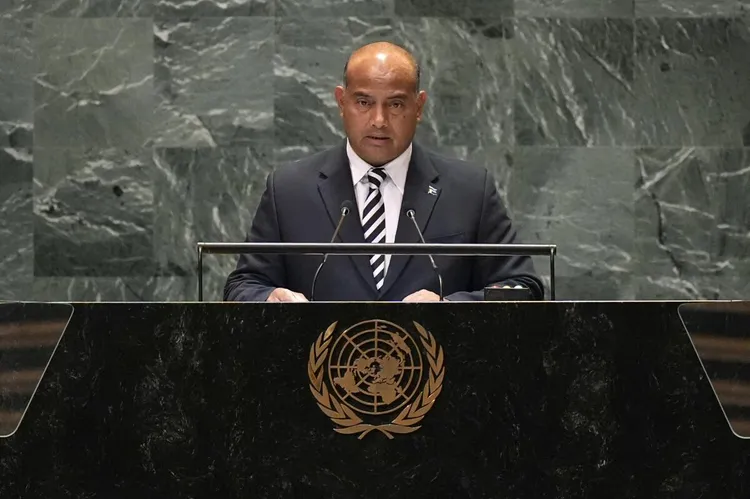Australia and Nauru have finalized a significant agreement allowing the Australian government to deport individuals previously detained without valid visas to the Pacific island nation of Nauru. This memorandum of understanding, as reported by the Australian Associated Press, marks a critical step in managing Australia’s immigration policy. Under the terms of the deal, Australia will provide an initial payment of $267 million to Nauru upon the arrival of the first deportees, followed by an annual contribution of $46 million dedicated to the long-term resettlement of these individuals. The agreement represents a strategic response to ongoing challenges within Australia’s immigration system, particularly concerning individuals held in detention who lack legitimate visa status. The move is immediately drawing criticism from refugee advocates and human rights organizations who express serious concerns about potential human rights abuses and the broader implications of mass deportations. These concerns stem from a 2023 High Court decision that effectively overturned Australia’s previous policy of indefinite detention for immigrants facing difficulties obtaining visas, often due to criminal conduct or the risk of persecution or harm upon return to their home countries. This landmark ruling led to the release of over 200 individuals from detention facilities, some of whom subsequently faced additional charges following their release. The Nauru agreement specifically targets this group of individuals, offering them a pathway to relocation to the island nation. Tony Burke, Australia’s Home Affairs minister, emphasized the agreement’s focus on ensuring the ‘proper treatment and long-term residence’ of these individuals, highlighting its role as a fundamental component of a functioning visa system. Burke stated unequivocally that ‘anyone who doesn’t have a valid visa should leave the country,’ underscoring the government’s stance on upholding immigration regulations. The initial deal, struck in February, facilitated the deportation of three violent criminals to Nauru, who had been granted 30-year visas. However, the current agreement represents a more substantial commitment, reflecting the ongoing complexities surrounding Australia’s immigration landscape. Critics, including Jana Favero, deputy chief executive of the Asylum Seeker Resource Center, have vehemently condemned the agreement, characterizing it as ‘discriminatory, disgraceful and dangerous.’ Favero’s statement reflects broader anxieties about the Albanese government’s approach to migration, arguing that the deal represents an ‘attack on migrants and refugees’ at a time when the nation has signaled a desire for unity and rejects fear-based policies. The Nauru agreement is therefore not just a bilateral agreement between Australia and Nauru, but a pivotal moment in the ongoing debate surrounding Australia’s immigration policies, human rights obligations, and the treatment of vulnerable populations. It’s a complex issue with significant legal, ethical, and humanitarian ramifications that will undoubtedly continue to be scrutinized and debated for years to come. The long-term impact of this agreement on the individuals being relocated, the relationship between Australia and Nauru, and the broader global perception of Australia’s human rights record remain to be seen, but it’s clear that the stakes are exceptionally high. This deal highlights the ongoing tension between Australia’s border security concerns and its international commitments to protect human rights. Furthermore, the precedent set by the High Court decision continues to shape the legal and political landscape, demanding a careful consideration of the rights and circumstances of all individuals involved. The agreement’s success will depend not only on the practical implementation of the resettlement program but also on upholding the principles of fairness, dignity, and respect for human rights throughout the process. Ultimately, the Nauru agreement represents a significant shift in Australia’s approach to immigration management, one that will have far-reaching consequences for both the nation and the individuals impacted by it.
News
























